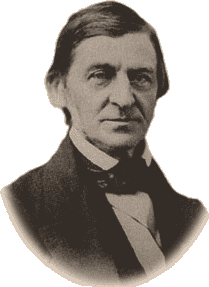New York Times surveys
In
Off With Their Heads, Morris cites the news media for distorting the news, pushing a blatant liberal agenda. He lacerates Howell Raines'
New York Times for its desperate attempts to pump up anti-war sentiment through the buildup to the Iraq War.
Morris also makes the case that the three broadcast networks slanted their news coverage on the war in Iraq by emphasizing casualties and downplaying other significant progress. He refers to
Peter Jennings, Dan Rather, Maureen Dowd and
Peter Arnett as the Sky-Is-Falling Brigade. "The American media establishment has blundered and blundered badly" in what Morris describes as a "credibility gap, but this time it's not official Washington that Americans disbelieve - it's the media itself that we can't trust to tell the truth."
Morris' case against the
New York Times is lengthy and well researched.
From that chapter:
The
New New York Times: All The News That Fits, They Print
There is a new
New York Times. Howell Raines's
New York Times. No longer content to report the news, he admits to "flooding the zone" - and floods it with stories that carry forward his personal crusades and the paper's editorial views. And the Times doesn't stop at slanting the news; it also weights its polls. The surveys the newspaper takes regularly are biased to give more strength to Democratic and liberal opinions and less to those of the rest of us.
The newspaper has become like a political consulting firm for the
Democratic Party. Under Raines, it is squandering the unparalleled credibility it has amassed over the past century in order to articulate and advance its own political and ideological agenda. For decades, the Times was the one newspaper so respected for its integrity and so widely read that it had influence well beyond its circulation. Now it has stooped to the role of partisan cheerleader, sending messages of dissent, and fanning the flames of disagreement on the left. Each month brings a new left party line from the paper, setting the tone for the government's loyal opposition.
Reading the
New York Times these days is like listening to
Radio Moscow. Not that it's communist, of course, but it has become almost as biased as the former Soviet news organ that religiously spewed the party line. Just as Russians did under Soviet rule, you now need to read "between the lines" to distinguish what's really happening from what is just
New York Times propaganda.
Morris spends great time on explaining the polling methodology used by the Times. He makes the case that the paper spends its own money to fish out positions that are most critical of the Bush Administration. He also goes into an interesting discussion of the use of weights in poll data, which is an industry-wide method to statistically compensate for inaccuracies.
Weighting polls is a perfectly legitimate practice, when corrections are needed. For example, often more women than men answer the telephone for pollsters, so they adjust accordingly to improve the poll's accuracy. Morris describes situations where their polls on subjective questions are down-right manipulated:
Acting like the chief campaign strategist for the left, the Times generally conducts six to eight public opinion polls each year. But lately the Times seems to me to be deliberately misinterpreting and weighting its data to suggest that its liberal ideas have a popularity they don't actually enjoy. The polling seems to have one major purpose - to help the Democratic Party set its agenda, encouraging it to embrace the Times's own liberalism on a host of issues. Then, from editorials to op-ed articles and a blizzard of front-page stories, the newspaper relentlessly expounds its views, doing its best to create a national firestorm on the issues it chooses to push.
Jack Shafer, the media critic for the on-line magazine
Slate, described the new policy to Newsweek on December 9, 2002: "The Times has assumed the journalistic role as the party of opposition" to the current Bush administration. According to
Newsweek, "many people around the country are noticing a change in the way the Old Gray Lady [the Times's pet name] covers any number of issues. . .. ." The magazine pointed out how Raines believes in "flooding the zone - using all the paper's formidable resources to pound away on a story."
Other newspapers often try to do the same thing. What is unique about the Times's approach is the sharp departure it represents from the paper's past. Long priding itself on objectivity, political neutrality, and even reserve in reporting news, the Times is renowned as our nation's primary voice of objective authority. As such, it occupies a unique place in our national iconography. But Alex Jones, author of
The Trust, a book about the Times, describes the Times's latter-day style of news coverage as "certainly a shift from the New York Times as the 'paper of record.' "
 "Soros reminds us of the guy who passes the board and gets into a private club or cooperative apartment house, and then tries to make it difficult for the next guy. One thing we do know for sure, in the advertisement that Soros and friends ran in the press, basically urging that everyone should be liable for paying taxes, mention was made of an organization that was formed by them to support their aims. The office of this organization was in Boston or Philadelphia (coming from New York the geographic lines are blurred). We called and told them, to their eager delight, that we wanted to make a contribution. But we wanted to make sure it was tax deductible. We were assured it was. We were reminded of the old Southern preacher who said, 'Don't do like I do. Do like I say do'. "
"Soros reminds us of the guy who passes the board and gets into a private club or cooperative apartment house, and then tries to make it difficult for the next guy. One thing we do know for sure, in the advertisement that Soros and friends ran in the press, basically urging that everyone should be liable for paying taxes, mention was made of an organization that was formed by them to support their aims. The office of this organization was in Boston or Philadelphia (coming from New York the geographic lines are blurred). We called and told them, to their eager delight, that we wanted to make a contribution. But we wanted to make sure it was tax deductible. We were assured it was. We were reminded of the old Southern preacher who said, 'Don't do like I do. Do like I say do'. "


 Waldo Emerson is truly the center of the American transcendental movement, setting out most of its ideas and values in a little book, Nature, published in 1836, that represented at least ten years of intense study in philosophy, religion, and literature, and in his First Series of essays.
Waldo Emerson is truly the center of the American transcendental movement, setting out most of its ideas and values in a little book, Nature, published in 1836, that represented at least ten years of intense study in philosophy, religion, and literature, and in his First Series of essays.
 A fully searchable
A fully searchable